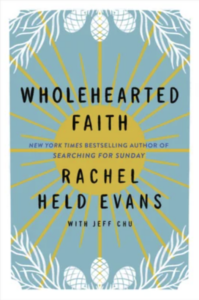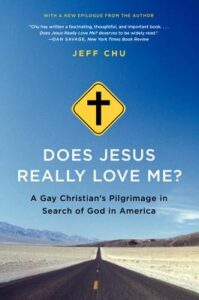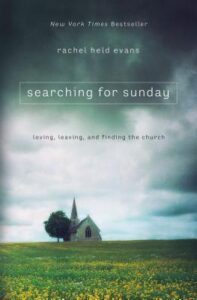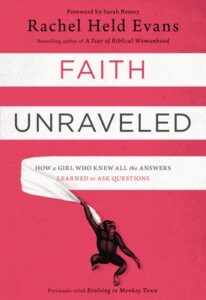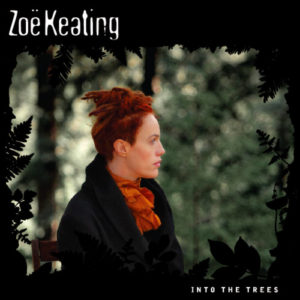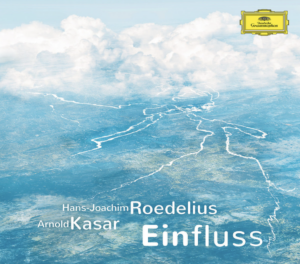Jeff Chu
A Life of Holy Curiosity
In Friendship with Rachel Held Evans
Here we are in a religiously-infused season — and in a world in which more and more of us experience ourselves to be religious nomads, misfits, even refugees. This deep reality of our life together is often simplified in analyses of the decline of traditional religious identity, of the rise of the spiritual-but-not-religious. Yet there is abundantly, alongside all of that, a rising theological and liturgical searching, a passionate calling towards service that echoes the heart of the great traditions. This is nowhere more true than around the boundaries of Christianity. And no person has given more winsome voice to it than Rachel Held Evans, who died suddenly at the age of 37 in 2019. Now her dear friend, journalist and preacher Jeff Chu, has midwifed her unfinished last book, Wholehearted Faith, into the world. He’s Krista’s wonderful conversation partner this hour — articulating a spacious understanding of God and grief, searching and belonging, for this changed world Rachel did not live to see, but speaks to still.
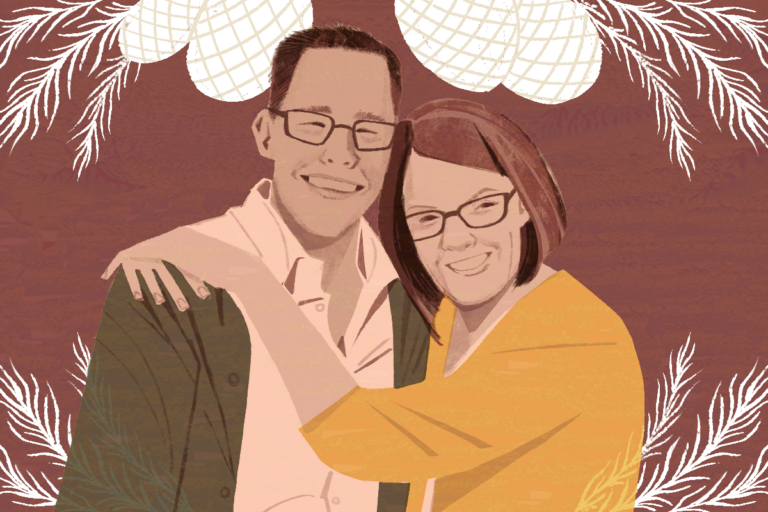
Image by Joules Garcia, © All Rights Reserved.
Guest
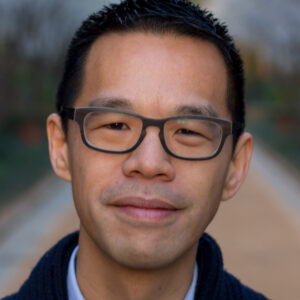
Jeff Chu describes himself as a “writer, reporter, pretend farmer, co-host, preacher, teacher.” He is co-curator of the Evolving Faith conference, alongside Sarah Bessey, who founded the gathering with Rachel Held Evans. He has written for an eclectic range of publications including Fast Company, Time Magazine and Modern Farmer, and is a teacher in residence at Crosspointe Church in Cary, North Carolina. He’s the author of Does Jesus Really Love Me?: A Gay Christian's Pilgrimage in Search of God in America and completed the late Rachel Held Evans’ unfinished work, Wholehearted Faith.
Transcript
Transcription by Heather Wang
Krista Tippett, host: Here we are, in a religiously-infused season and in a world in which more and more of us experience ourselves to be religious nomads, wanderers, even refugees. This deep reality of our life together is often lost or simplified in analyses of the decline of traditional religious identity, of the rise of the spiritual but not religious.
There is abundantly, alongside all of that, a rising theological and liturgical searching, a passionate calling towards service that echoes the heart of the great traditions. This is nowhere more true than around the boundaries of Christianity, and no person has given more winsome voice to it than Rachel Held Evans. She wrote about faith, doubt, and life in the Bible Belt in books like Faith Unraveled, Searching for Sunday, and A Year of Biblical Womanhood. She died tragically at 37, in 2019, of complications from the flu, leaving behind two very young children and a world of bereaved friends and followers.
But now a book on which she’d been working before her death, Wholehearted Faith, has come into the world, midwifed and completed by her dear friend and colleague, the journalist Jeff Chu. He’s my conversation partner this hour, and what a conversation — refreshingly transcending the arguments, caricatures, and excesses that are so defining of public religiosity; articulating a spacious understanding of God and grief, belonging and searching, that meet this changed world Rachel did not live to see, but speaks to still.
[music: “Seven League Boots” by Zoë Keating]
I’m Krista Tippett, and this is On Being.
Jeff Chu has written for an eclectic range of publications including Fast Company, Time magazine, and Modern Farmer. He describes himself as a “writer, reporter, pretend farmer, co-host, preacher, teacher.” Together with Rachel Held Evans and Sarah Bessey, he became involved and now co-leads the Evolving Faith community, conference, and podcast. He lives in Grand Rapids, Michigan.
Hello.
Jeff Chu: Hello, Krista. How are you?
Tippett: I’m good. Welcome.
Chu: Thank you so much.
Tippett: So what I want to do is have this conversation — not so much about your friendship with Rachel, but out of your friendship with Rachel, and this spiritual and theological conversation that you’re still in with her and that now the two of you, through this writing, are in with a lot of the rest of us.
But I want to start where I start with almost everybody, by actually hearing about the religious background of your earliest life, your childhood that formed you, that you bring to this. I understand your parents were immigrants from Hong Kong, and you grew up kind of Chinese Baptist. Would you just say, what does that mean? And also, how is that resonant — you’ve had a lot of ease — you’ve had ease and you’ve had complication with that identity across the rest of your life, but how does it resonate in this time in the life of the world that we’re in now?
Chu: So the churches I spent my early childhood in were Chinese Baptist churches that belonged to the Southern Baptist Convention. But because they were also really Chinese cultural community centers in a sense, we were insulated somewhat from some of the social pressures, some of the social norms of American evangelicalism. There was a certain roominess to our tradition that I don’t think fits with the stereotype of Southern Baptists.
My great-grandfather on my father’s side, he was converted at the Salvation Army or the YMCA — depends on who you ask — in Hong Kong.
Tippett: Both of which were profoundly Christian organizations in their roots.
Chu: Profoundly Christian. And the story goes that my great-grandfather had two spirits who traveled everywhere with him, riding on his shoulders, engaging him in constant conversation. And they started to get very upset when he started going to church in Hong Kong.
Tippett: Oh, that’s so interesting, that — those things coming together.
Chu: The very last day that my great-grandfather, who I had the privilege of knowing and meeting when I was a kid, the very last day he ever spoke to his companion spirits was on the day of his baptism.
Tippett: Wow.
Chu: They were furious. And they left him.
What do I do with a story like that?
Tippett: Yeah.
Chu: I think it creates room. I think it creates space to imagine things that are beyond what we can see. And I treasure that. I’m so lucky I had that. I treasure the memory of sitting on my grandparents’ couch under a crocheted afghan as they read the Psalms every morning in Chinese. I treasure the memory of the hymns that we sang every morning in Cantonese — “Jesus Loves Me,” “Trust and Obey,” “He Lives” — these really traditional American Baptist songs.
Tippett: Yeah, which I also grew up with, and they like, they enter you at a cellular level.
So your trajectory from that religion-soaked childhood that so formed you, that continued to form you, was also one of stepping out, stepping away, which is a very, very common trajectory. I look at your website, and you say — you call yourself a writer, reporter, editor, preacher, and teacher. And there’s this line, “Some days I believe in God; other days, I want to believe in God.” And that — what do we want to call this? That trajectory, that drama, is very much also what your friend Rachel was speaking out of and speaking to in so many people in the larger world. And I wondered if you would like to read pages 17, 18, “On the days when I believe,” from this book Wholehearted Faith, or if you’d like me to read it? Either way.
Chu: I can read it. Hang on for a second, and let me pull it up.
“On the days when I believe, the sun streaks across these East Tennessee hills, showing me that green isn’t one color but a million. The infinite deep blue of the sky feels less like an endless void ready to swallow me whole than an open and generous invitation, beckoning all of us who are prone to wander.
“On the days when I believe, the raucous laughter of my kids sounds like the prelude to a grander symphony, a promise of unadulterated joy to come.
“On the days when I believe, I regard the tulip tree outside my kitchen window and learn from it. Rooted but flexible, it adjusts to the seasons, offering its abundant nectar to bees and butterflies during times of flowering and then seeds and shade to birds and squirrels after that.
“On the days when I believe, I feel enfolded in a story so much greater than my own. It’s a story that knits together a thousand generations of saints — which is to say, folks like you and me who wrestle with their questions and their doubts, who interrogate the systems and structures of the society around them, who search for a way to make sense of it all, and who wonder whether they belong and whether they’re loved. It’s a story that makes audacious claims about a man-god named Jesus and calls us into his outstretched arms.
“On the days when I believe, a prayer feels as if it’s just another beautiful beat in a long-running conversation. Nothing is withheld. Everything finds its place, whether lament or hallelujah. I’m convinced it is all heard, because it’s a whisper into the ear of an attentive God who loves me and whom I love.
“And then there are the other days.”
Tippett: And then there are the other days.
Chu: There’s a lot of other days.
Tippett: [laughs] Yeah. Was this a passage that Rachel had written before she died?
Chu: For the most part, yes. This is very Rachel. She used that phrase, “On the days when I believe,” often. And I think it was effective and is effective because it gives so many of us permission — permission to name doubt, permission to acknowledge the questions that we have, and permission to find solidarity among others who also have doubts and questions.
Tippett: You know, something that feels so important to me in this and that I realized as I was getting ready to speak to you, and that we would speak about this, is kind of not said out loud in our life together. And so, for example, I hear a lot and work a lot with the language and the concept of the nones, the n-o-n-e-s, right, the ever growing part of the population that will — talk about simplifying something complex — will answer “none,” on a multiple-choice question of What is your religious identity? And the other phrase that’s out there, that’s just really become this catchphrase: “spiritual, but not religious.” Spiritual, but not religious. I think you can mark that on dating sites, also.
But there’s this whole other phenomenon that’s very much alive, certainly in the United States, but I think globally, and certainly within Christianity. And this, I would say — I want you to work with me on the language, but it’s religious-but-in-exile, or religious-and-wandering. And you have this — so Evolving Faith, did you start that together?
Chu: Rachel and her friend, our friend, Sarah Bessey, started it together in 2018. So Sarah and I now co-lead Evolving Faith. Rachel passed away about three months after I joined the leadership team.
The language that we often use at Evolving Faith is the wilderness, the language of the wilderness, being called out into the wilderness, because that’s what it feels like for so many of us. It feels like a windswept, lifeless space that, when you stop and are attentive to it, it’s actually not that lifeless. Even in the biblical accounts of wilderness, for instance, we have to learn to attune ourselves to the landscape and to the things that are thriving, whether it’s jackals or birds of prey or scorpions — there is life out there. Somehow, these creatures are finding sustenance and water. And maybe the invitation is to look at things a little differently, because we don’t have the comforts of the city; we don’t have the strength of the fortress anymore. But that doesn’t mean we’re alone. That doesn’t mean we’re abandoned.
Tippett: Here’s some language from the Evolving Faith site. “Welcome home, questioner and doubter. Question-asker, status-quo upender, church kid, bible nerd, rebel, yes, you. You wonderer, spiritual refugee, weary one, idealistic cynic and disappointed disciple. Hello, we see you.”
So, you know, when I hear something that Bishop Michael Curry said of Rachel Held Evans, he said, “She helped mainline Christians stop being afraid of Jesus, and she helped evangelicals know the love of God.”
And what that points at is, yes, the move back and out and opening up that room, but also getting a new view of what seems to be essentially at stake.
Chu: Love is at stake. And one of the things I appreciated most about Rachel is how she constantly reminded me, both publicly and privately, of the enormity of love — of God’s love, but also of the possibility of the love that we could hold, together. I think we need more love in the world. We need more tenderness. We need more gentleness. We need more fierce advocacy for justice. We need more goodness. And so many of us just need a little reminder from time to time that love is there. Love is there, if you pay attention. Love is there if you turn your hearts just a little bit.
I need that.
[music: “Brot” by Ólafur Arnalds]
Tippett: I’m Krista Tippett, and this is On Being, today with journalist, writer, and preacher Jeff Chu, who has brought the late Rachel Held Evans’s last book into the world.
[music: “Brot” by Ólafur Arnalds]
So I asked you to point to a few passages that felt important to you or, I don’t know, get at the essence of this. And I’d like to kind of just go through some of those with you and talk about them, and talk about what they mean to you, why they’re important; and then I also brought a few [laughs] that I really would love to engage you on. So are you up for that?
Chu: Go for it.
Tippett: You offered, first of all, from the prologue. And it starts with this incredible image of God shrinking down to the size of a zygote. But I want to flag that what she says right before this passage that you identified is that Christians are known as Easter people, but she’d never found that as compelling as the incarnation. And we’re actually putting this on the air around Christmastime, which is that time of celebrating the incarnation. And, of course — yeah, so would you read that, this passage that you sent to me, on page 4?
Chu: Sure. Page 4: “It is nearly impossible to believe: God shrinking down to the size of a zygote, implanted in the soft lining of a woman’s womb. God growing fingers and toes. God kicking and hiccupping in utero. God inching down the birth canal and entering this world covered in blood, perhaps into the steady, waiting arms of a midwife. God crying out in hunger. God reaching for his mother’s breasts. God totally relaxed, eyes closed, his chubby little arms raised over his head in a posture of complete trust. God resting in his mother’s lap.
“On the days and nights when I believe this story that we call Christianity, I cannot entirely make sense of the storyline: God trusted God’s very self, totally and completely and in full bodily form, to the care of a woman. God needed women for survival. Before Jesus fed us with the bread and the wine, the body and the blood, Jesus himself needed to be fed, by a woman. He needed a woman to say: ‘This is my body, given for you.’”
I love this passage so much. Oh, I love it, and I miss Rachel.
Her writing about the incarnation teaches me all over again, every time I read it. And it strikes me how strange the Christian story is, that God would inhabit a human body with all its aches and pains, this squawking, gurgling baby body, a vulnerable and needy infant body. It is such a bizarre tale, but it’s also so beautiful.
Tippett: It’s — this is something — the title of this book is Wholehearted Faith, but it’s also really about embodied faith. And this — this imagery of really, really looking so closely at what are — just as you said, the strangeness, what is being said here and how it is about physicality.
Chu: There was a time when I essentially treated my body as if it were the necessary carrying case for the parts of me that really mattered, which is to say, my brain and my soul. The body was just an inconvenience. It was a reality, but it was an inconvenience.
But the incarnation reminds me that it isn’t. Our bodies are our first homes. So how do we make peace with them? How do we love them well? How do we honor them? How do we grapple with the things that trouble us in our bodies, but also find the God-given goodness in them? And the incarnation story and Rachel’s presentation of it moves me as much as it does because it meets me in my own pain and insecurity. But it also reminds me of the beauty and the vulnerability. Our bodies are as much a part of our human experience as our brains and our souls, even if our religious traditions haven’t always testified to that.
Tippett: So you also sent me some paragraphs from Chapter 2. Let me just see. What is that chapter called — 31, 32 …
Chu: Oh, was that “My Wicked Little Heart”?
Tippett: “My Wicked Little Heart,” yes.
Chu: Yes. “My Wicked Little Heart.”
Should I read that?
Tippett: Yeah.
Chu: OK. “In hindsight, I see that it was my privilege that protected me from the sharpest edges of my own theology. I am white. I am straight. In my younger years, I served as a poster child for the most popular and protected religion in the country, in a town where my brand of the faith happened to dominate. Whether out of fear or devotion or some combination of both, I happily played by every one of the rules. But back then I didn’t even know what privilege was, unless you’re talking about the privilege of serving as a young and zealous ambassador for Christ.
“All the while, many of my classmates lumbered beneath the weight of these socially imposed Christian regulations and their accompanying expectations. They hid their sexuality. They smiled through racist slurs. They minimized their doubts. They kept quiet about their abuse.”
Tippett: And then there was that last line, “Now I regret that I didn’t understand any of this at the time. So convinced God lived in the boxes I’d constructed, I failed to look for God in God’s favorite place: the margins.” [laughs]
Tell me what this part means to you.
Chu: I’m not a woman; I am not white; I am not straight — I am so different from my friend. And why this passage is meaningful is because she was my friend. She chose to reach out to me, and she chose to make room for me. I first met Rachel because she reached out to my publisher, when I was nobody to her, and she asked how she could help. And I was honored, once I realized who she was, because honestly, I didn’t know who she was, I was so immersed in the world of journalism. I had so separated myself from American evangelicalism.
Tippett: Right; and you said she was already “evangelical-famous” by the time you met her, but you hadn’t been paying attention to that.
Chu: She was. I was not aware at all. And Rachel made room.
I think one of Rachel’s gifts was that she chose to love me in the particularity of who I am. And I think this was true of many people who felt loved by Rachel. I remember when she first invited me to speak at the Why Christian? Conference in 2016, which she hosted with Nadia Bolz-Weber. She didn’t do what a lot of other folks do. She didn’t relegate me to Pride Sunday or Asian American Heritage Month. She just asked me to tell my story. So there was room made, yes, for the Gaysian part of me, but she invited me to be my whole self. And that was true in public, and that was true in private. How often do you feel loved for your whole self, with all your complications and all your strengths and all your demographic markers and all your personality quirks?
I think Rachel’s growing recognition of her privilege, it wasn’t something that she just sat with; it actually moved her. It moved her to tweet about justice, which was rooted in her understanding of Christianity. It moved her to introduce promising writers to agents. It moved her to extend speaking invitations. It moved her to send emails and text messages with so much encouragement. It moved her to build friendships and to offer support to total strangers. Who does that?
Tippett: Yeah, I love what you just said, and you somewhere said that her justice work manifested very much in the move to friendship, which is such a wonderful way, wonderful image, wonderful way to think about —
Chu: I don’t think most of us want to be the object of a cause. Most of us want to be friends.
She also knew that she could learn from everyone. It’s one thing to see folks as needing you to come alongside them for the cause of justice. It’s another thing to say, These people are my teachers. These people have wisdom and knowledge and goodness to offer not just me, but to the whole world. And I wonder how the world might be different if we realized how many of our neighbors could also be our teachers.
Tippett: And friends. [laughs]
Chu: And friends.
[music: “The Kennicott” by Blue Dot Sessions]
Tippett: After a short break, more with Jeff Chu.
[music: “The Kennicott” by Blue Dot Sessions]
I’m Krista Tippett, and this is On Being, today, in this most religious of seasons, exploring the depths of being a religious wanderer, searcher, misfit — a state that is increasingly defining more and more of us, especially the young and inside Christianity. Jeff Chu is a writer and preacher who was a dear friend and co-conspirator of the controversial and beloved writer Rachel Held Evans. She wrote Searching for Sunday, Faith Unraveled, and A Year of Biblical Womanhood. She died suddenly, at the age of 37, in 2019. And Jeff has just brought her unfinished last work, Wholehearted Faith, into the world.
You spoke, when we began, about the Psalms, hearing those songs, Cantonese, in Cantonese, that kind of entered your body, that were part of your childhood, that stay with you. And Rachel actually writes about — or you and Rachel, in this book that you co-wrote and midwifed — about the Psalms and about the role of the Psalms. And actually, Ellen Davis, who was a teacher to her, has also been a teacher to me.
What I have loved and what I loved how Rachel called out is how the Psalms, which are the prayer book of the bible, invite us to bring absolutely every experience and every emotion before God. And, you know, and there’s also a lot of railing against God. And that can coexist with a turn of praise or lament. She quotes a passage in Ellen’s book where she meditates on Psalm 102, and these lines: “For I eat ashes like bread, / and mingle tears with my drink, / because of your indignation and anger; / for you have lifted me up and thrown me aside. / My days are like an evening shadow; / I wither away like grass.”
And then: “This is one of the things I’ve been missing in many contemporary articulations of Christianity — a raw, unadorned expression of how much things can truly suck.” [laughs]
Chu: The psalmist can be kind of a drama queen.
Tippett: [laughs] Like us.
Chu: The psalmist can be really rude. The things that the psalmist dares to say to God, on the face of it, how can you say that to the creator? And yet, when I look back to the way I thought about prayer when I was a kid, I realize I was praying to a really small-minded God. And I had this conception of God that somehow allowed me to believe I could keep secrets from God.
Tippett: And almost that you had to keep secrets, right?
Chu: But what’s the point of keeping secrets from someone who already knows?
Tippett: [laughs] Right, right — if God is God, yeah.
Chu: If God is God. If God truly knows me as intimately and as closely as a big and powerful and gentle God can and should, what’s the point of censoring myself? And I think there’s a beautiful invitation in so many of the psalms, just to let it all hang out, to put it out so that you’re not wrestling with this stuff alone, so that God is invited alongside you to try to make sense of the mess.
I think it’s important, too, that not every psalm resolves in praise and adoration. If you look at Psalm 88, it ends in despair. You end up sitting there in a pile of ashes, and yet, there’s still Psalm 89, and there’s still Psalm 90. There’s the whole prayer book, because that’s not the end of the story.
Tippett: Just kind of following on what you just said about the image of God — and one of the fascinating things to me, in this time, is that even as religion in these forms that it had — that, coming out of the 20th century, is in incredible flux — the word “God” is rising. And it’s a word that we can’t let go of, and it’s wide open, what that means. The word, obviously, has always been too small.
Here are also some lines of the book. “The God I have come to believe in is not some stern grandpa in the sky, waiting in quiet exasperation for me to slip up, which I inevitably will, and then tallying up my acts of faithlessness and righteousness, versus my deeds of ingratitude or moral failure.”
Rachel said, “The idea of that kind of god doesn’t sit well with me at all. Instead, I’ve come to see God through the things God has done. That God met Peter on the stormy waters of faith and took a holy sledgehammer to my self-constructed certainty. That God is the architect of creation, the engineer of love, and the master [artisan] who came up with the idea of the heart.”
Chu: Some days, we might wonder what God was up to in creating the heart, depending on what kind of torment or sadness we’re feeling. We have these images in scripture of, famously, Jeremiah saying the heart is deceitful above all things, right? — a verse that caused a lot of suffering for a lot of us in church, over the years. But then there are so many beautiful images of the tenderness of the heart and the goodness of the heart and the ways in which the heart can lead us towards good. I love the Hebrew phrase “the thoughts of the heart,” which breaks down that duality that so many of us grew up with — that the heart is the place where wisdom can be rooted.
Tippett: Yeah, I think the heart, in the bible, is also about imagination. And also, I think of the Rule of Benedict, “Listen with the ears of your heart.” So this language of wholehearted faith, I mean, we’ve been talking about it the whole time. But how would you start to give an answer to what is meant by “wholehearted faith”? And what is it — what is this notion being offered up to kind of expand upon or repair, in terms of how faith has come down in many ways?
Chu: Honestly, I think the point of Rachel’s whole book — and Wholehearted Faith, I should say, was her original title for this, so we didn’t change that. Wholehearted faith is about recognizing our belovedness. If we are truly loved, what are we afraid of? If we are truly loved, nothing is beyond the limits of our imagination and our exploration.
I think that’s what wholehearted faith means. It is about giving folks the courage that they need to get through life in a world that can be cruel, in a world that can be full of injustice; but it invites us not just to sit there and suffer silently or to sit there and watch others suffer silently. It asks us to show up. It asks us to show up with our hearts and with our minds, and our arms and our legs and all of us. In some ways, maybe it should be called whole-body faith, not just wholehearted faith.
[music: Rolling by Roedelius & Arnold Kasar]
Tippett: I’m Krista Tippett, and this is On Being, today with journalist, writer, and preacher Jeff Chu, who has brought the late Rachel Held Evans’s last book into the world.
[music: Rolling by Roedelius & Arnold Kasar]
You know, I really appreciate how this conversation we’re having, and this book, they’re not about playing into the arguments and the divisions and the caricatures and the excesses that are alive in kind of public religiosity. And I wanted to read this part that, to me, again is kind of — it kind of recasts, it kind of offers up a description of a way forward. Let me just read it, and I’d love to hear your thoughts on it.
“Faith in Jesus has been recast as a position in a debate, not a way of life. But the truth is … I’ve found people to be much more receptive to the Gospel when they know becoming a Christian and being a Christian doesn’t require becoming a know-it-all. That is a form of faithful freedom too. There is liberation in not having to know everything and not having to impress everyone with that boundless knowledge … And many of us have found a renewed sense of possibility when we’ve realized how much of God’s beauty remains to be explored — and that the life of faith is also a life of holy curiosity.
“Anyway, most of the openhearted wanderers I’ve encountered” — we’re back in the wilderness, here — “are looking not for a bulletproof belief system but for a community of friends, not for a spiritual encyclopedia that contains every answer but for a gathering of loved ones in which they can ask the hard questions.”
Chu: So many of us spend so much of our lives craving other humans’ approval — practically begging for it. I know I have. I know Rachel did. And one of the things about this book is that it reminds us we don’t need to do that. We don’t need to do that anymore, because our belovedness to God sets us free from the need for human approval. It is, to appropriate Ecclesiastes, it’s chasing after the wind. We’re never going to find the satisfaction that we seek, from winning an argument on Twitter or getting more likes on Instagram or winning a debate.
I think we unwittingly give other people so much power over us when we engage in the usual discourses. I’ve seen folks draw a line, for instance, saying that they won’t engage with anyone who doesn’t fully affirm all of them, including their sexuality. I’ve had people tell me that as long as my parents aren’t affirming of my sexuality, which they are not, I shouldn’t go home.
I get that for some people, that might be a right and good and healthy boundary. But for me, it’s not. When I can remember my belovedness to God, I choose to set my boundary in a different place, because here’s the thing. If I were to set other people’s affirmation or lack thereof as my litmus test, I know, the way my heart and mind work, I’m putting myself in a reactive position. I’m giving the other person a lot of power. I’m letting them set the rules of engagement. I’m asking them for respect.
But I already have God’s love. My dignity is my God-given dignity, whether others acknowledge it or not. My marriage is good, whether others acknowledge it or not. My body, which is flawed and weird and sometimes painful, it’s lovely, whether others acknowledge it or not, and even whether I acknowledge it or not.
Tippett: I keep coming back to that image that you offered right at the beginning of the conversation, is “room” — that there’s much more room here, to discern and to be, and it’s all more spacious.
We need to draw to a close, but I do wonder if you’d say a little bit, before we finish, about your theology of compost. [laughs]
Chu: The theology of the compost pile is something that I learned when I was at seminary, at Princeton. Princeton Seminary has something called The Farminary — “farm” plus “seminary” equals “farminary.” And the first time Nate Stucky, the director of The Farminary, invited my cohort of students out to the compost pile, I thought it was disgusting. It was rotting vegetables and banana peels and coffee grounds and all these things we would typically see as trash, as waste, which gets carted off to a landfill out of our sight. And the compost pile changed that for me, because Nate told us to dig around in the compost pile and look for signs of new life.
And that taught me that there is an opportunity to steward death well when death happens, which it will — not erasing the pain, not erasing the brutality, but acknowledging both it and the possibilities that still remain, afterwards. When you lose something good, when you lose something you’ve loved, when you lose the sense of being actively loved, that is worthy of grief. But that can’t be the end of the story. I refuse to believe it. I refuse to believe that death is the end of the story. And that’s the lesson of the compost pile.
Tippett: I think it’s also a lesson of this book that you’ve helped bring into the world, right? — that your friend Rachel was writing, and was not finished when she died, and now it is in the world. And it’s a transformed thing in a transformed world. I mean, when she died, which was in May 2019 — is that correct? She was this young woman with a young baby, and it was this senseless — right? — a complication of the kind of infection any of us could get at any time. It was so shocking. And then, I don’t know, I have thought, and I wonder if you have thought about how, I mean, less than a year later, we were in a world in which there was senseless dying all around.
Chu: There is so much sorrow. There is so much grief in this world. I think the pandemic has brought that home, both literally and figuratively, to so many of us. I am sad; I will always be sad, as will, I expect, Rachel’s husband and her parents and her sister and her closest friends. And I know that sadness will shift shape, and its contours will change, but I think the sorrow and the grief will always be with us.
So how do you make peace with that?
I think grief is the embrace that we no longer get to share. I think grief is the thanks that we can no longer express in person. I think grief is the love that has to find a place to go, now that the person we’re grieving is no longer here. And I know that my grief and the grief that so many other people are experiencing in the world right now, it cuts as deep as it does because the love is as profound as it is.
Tippett: I wondered if we might end with you reading, actually, another part from the beginning of the book — page 2. So we started with your question, or your observation, her observation, “Some days I believe in God; other days, I want to believe in God.” And this kind of picks up from that in a different way. So starting with “On those days and nights” and ending with, on the next page, “belonging.”
Chu: “On those days and nights, when my most honest answer to the question, ‘Why are you a Christian?’ is just, ‘I don’t know; Why not?’ That might seem like a paltry and pale version of ‘Yes,’ but it is a yes, nonetheless.
“For better or for worse, there are seasons when we hold our faith, and then there are seasons when our faith holds us. In those latter instances, I am more thankful than ever for all the saints, past and present, who said yes and whose faith sustains mine. They believe for me when I’m not sure I believe. They hold onto hope for me when I’ve run out of hope. They are the old lady next to me in the pew and the little kid behind me who recite the entirety of the Apostles’ Creed on my behalf on those Sundays when I cannot bring myself to say all those ancient words wholeheartedly — Is this what I really believe? They pray for me when the only words I have to say to God are words that I refuse to allow to be printed on this page, because they would make even my most foul-mouthed friend blush.
“I’ve come to believe that wholehearted faith isn’t just about coming to terms with the heart that beats inside me. It’s also about understanding how God has knit together my heart with the hearts of that old lady and that little kid. Wholeheartedness is about seeing and comprehending my place in a bigger family of faith, just as parenthood has transformed my understanding of my role in a biological and social unit. It is about risking hurt and confusion for the sake of the thing that so many of us seek: belonging.”
Tippett: Do you want to say anything about that?
Chu: I want to belong. Isn’t that one of the greatest desires of every human? I don’t know that we can remain tenderhearted alone. I don’t know that we can survive alone. We weren’t built for that. We need community. We need love. We need to belong.
[music: “A Walk” by Tycho]
Tippett: Jeff Chu co-leads Evolving Faith, a community, conference, and podcast. And he’s a teacher-in-residence at Crosspointe Church in Cary, North Carolina. He’s the author of Does Jesus Really Love Me?: A Gay Christian’s Pilgrimage in Search of God in America.
Rachel Held Evans wrote several books, including Searching for Sunday, Faith Unraveled, and A Year of Biblical Womanhood. Her posthumous work, finished by Jeff Chu and out now, is Wholehearted Faith.
[music: “A Walk” by Tycho]
The On Being Project is: Chris Heagle, Laurén Drommerhausen, Erin Colasacco, Eddie Gonzalez, Lilian Vo, Lucas Johnson, Suzette Burley, Zack Rose, Colleen Scheck, Julie Siple, Gretchen Honnold, Jhaleh Akhavan, Pádraig Ó Tuama, Ben Katt, Gautam Srikishan, Lillie Benowitz, April Adamson, Ashley Her, Matt Martinez, and Amy Chatelaine.
The On Being Project is located on Dakota land. Our lovely theme music is provided and composed by Zoë Keating. And the last voice that you hear, singing at the end of our show, is Cameron Kinghorn.
On Being is an independent, nonprofit production of The On Being Project. It is distributed to public radio stations by WNYC Studios. I created this show at American Public Media.
Our funding partners include:
The Fetzer Institute, helping to build the spiritual foundation for a loving world. Find them at fetzer.org;
Kalliopeia Foundation, dedicated to reconnecting ecology, culture, and spirituality, supporting organizations and initiatives that uphold a sacred relationship with life on Earth. Learn more at kalliopeia.org;
The George Family Foundation, in support of the Civil Conversations Project;
The Osprey Foundation, a catalyst for empowered, healthy, and fulfilled lives;
The Lilly Endowment, an Indianapolis-based, private family foundation dedicated to its founders’ interests in religion, community development, and education;
And the Ford Foundation, working to strengthen democratic values, reduce poverty and injustice, promote international cooperation, and advance human achievement worldwide.
Books & Music
Recommended Reading
The On Being Project is an affiliate partner of Bookshop.org and Amazon.com. Any earnings we receive through these affiliate partnerships go into directly supporting The On Being Project.





